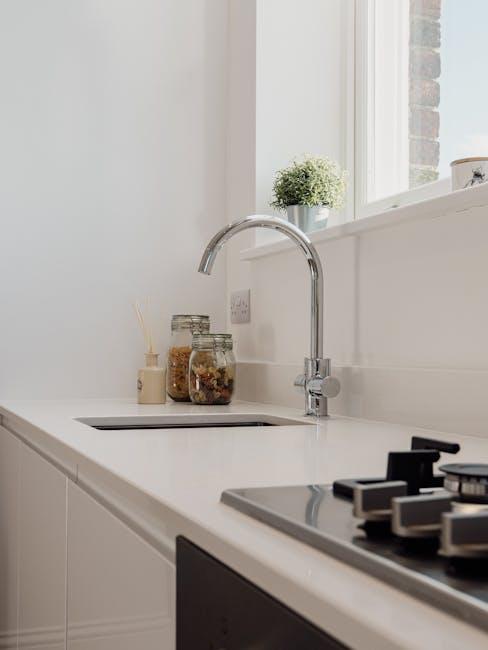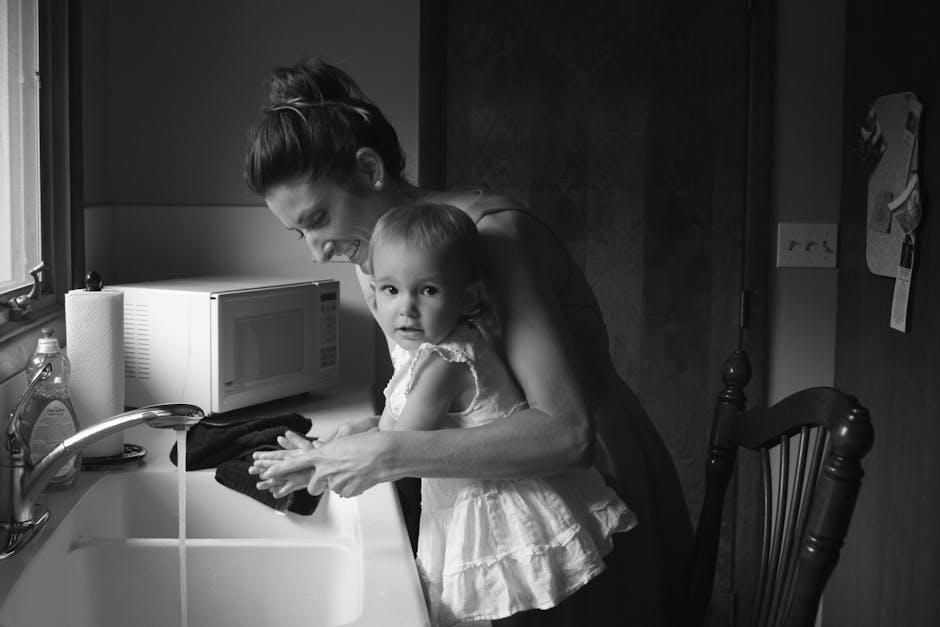Imagine standing before your kitchen sink, water swirling as dishes soak or drain, a quiet microcosm of order-or chaos. What if this everyday scene held a mirror to your inner world? Just as a sink can overflow, remain stagnant, or gleam with clarity, so too can our minds reflect varying states of flux, calm, or clutter. In this article, we delve into the intriguing ways your sink state can reveal the hidden rhythms of your mental landscape, inviting you to explore the subtle connections between your external environment and your internal mindset.
The Psychology Behind a Cluttered Sink and Its Impact on Mental Clarity

When you glance at a sink overflowing with unwashed dishes, it’s often more than just a domestic dilemma-it’s a visible manifestation of an underlying mental state. Psychologists suggest that physical clutter, such as a chaotic sink area, can contribute to cognitive overload. This chaos triggers your brain to work overtime, sapping mental energy by continuously reminding you of unfinished tasks. The constant visual noise subconsciously signals stress and unfinished business, making it harder to focus on other priorities. Over time, this creates a feedback loop where physical mess leads to mental clutter, which can stall productivity and heighten feelings of anxiety.
In addition to heightened stress, disorganized spaces like cluttered sinks can subtly erode motivation and lower mood. The brain thrives on order and simplicity, and mess acts as a barrier, preventing mental clarity. Here’s why it matters:
- Decision fatigue: Increased clutter means more choices and prioritization, wearing down your brain.
- Reduced mindfulness: Visual distractions pull attention away from present tasks and mindfulness.
- Impaired relaxation: Mess sends signals of chaos, hampering your ability to unwind.
| Impact | Mental Effect | Sink Symbolism |
|---|---|---|
| Clutter | Stress & Overwhelm | Unfinished chores |
| Visual Noise | Reduced Focus | Disorganization |
| Procrastination | Low Motivation | Avoided tasks |
How Your Sink State Mirrors Stress Levels and Emotional Well-being

The state of your sink-whether cluttered, spotless, or somewhere in between-can often serve as a subtle reflection of your inner emotional landscape. A sink piled high with unwashed dishes may indicate underlying stress or a feeling of being overwhelmed, mirroring how your mind handles pressures, deadlines, or emotional turmoil. Conversely, a clean and organized sink can suggest a sense of control and calm, highlighting moments when your mental well-being feels balanced and resilient. It’s fascinating to see how tangible household spaces act like a canvas, silently displaying your current psychological state without a word spoken.
When you start to observe this connection, it becomes easier to recognize patterns of emotional unrest or peace. Small behavioral cues associated with sink upkeep might reveal more than you expect:
- Neglecting the sink: Often linked to fatigue or stress overload.
- Frequent cleaning: Reflects a need for order during chaotic times.
- Immediate dishwashing: Indicates a proactive and mindful approach to mental well-being.
| Sink State | Possible Mind State | Emotional Indicator |
|---|---|---|
| Cluttered & messy | Overwhelmed, anxious | High stress, low motivation |
| Clean but scattered | Distracted, busy | Moderate stress, scattered focus |
| Spotless & organized | Calm, centered | Low stress, clear mindset |
Practical Ways to Restore Order in Your Sink and Calm Your Mind

Start by decluttering your sink area to create a visual sense of calm. Remove unnecessary items and wipe down surfaces regularly to prevent buildup of grime and chaos. Incorporate small, daily habits such as rinsing dishes immediately after use or setting a timer to tidy the sink before bedtime. These seemingly minor actions can restore physical order and foster a mental routine that reduces stress and invites mindfulness into your everyday life.
Consider the following simple strategies to maintain balance both in your sink and within your mind:
- Designate zones: separate washing, drying, and storage areas to streamline workflow.
- Use organizers: baskets or trays keep cleaning tools neatly contained.
- Incorporate natural elements: a small plant or scented candle adds tranquility.
- Schedule resets: a weekly deep-clean session to prevent clutter from spiraling.
| Action | Benefit | Time Required |
|---|---|---|
| Wipe Countertops | Maintains cleanliness and hygiene | 5 mins |
| Organize Cleaning Supplies | Reduces visual clutter | 10 mins |
| Clear and Rinse Dishes | Prepares area for next use | 15 mins |
| Light a Scented Candle | Promotes calm and relaxation | 1 min |
Creating Rituals Around Sink Maintenance for Lasting Mental Balance

Incorporating simple yet purposeful rituals into your sink maintenance can serve as an anchor for mental balance in the chaos of daily life. These rituals transform an ordinary chore into a mindful practice, encouraging presence and clarity. Start by setting a specific time each day or week for this task, treating it not as a hurried obligation but a moment of intention. Use this time to clear away clutter, scrub stains, and arrange your sink area with care. The act of rinsing and wiping becomes symbolic – washing away distractions and reflecting on mental clarity. Over time, this cycle fosters a sense of accomplishment and calm, aiding emotional regulation and stress relief.
To support this habit, consider the following elements that add meaning and structure:
- Aromatherapy: Add a few drops of essential oil to your cleaning water to engage your senses.
- Lighting: Use soft, warm lighting during your maintenance ritual to create a soothing atmosphere.
- Affirmation: Recite a positive phrase that resonates with your mental goals as you clean.
| Element | Benefit | Example |
|---|---|---|
| Aromatherapy | Enhances mindfulness | Lavender drops in water |
| Lighting | Soothes anxiety | Warm LED candle |
| Affirmation | Boosts positive mindset | “Clear space, clear mind” |
The Conclusion
In the quiet ripple of water pooling in your sink, there lies a mirror reflecting the currents of your mind. Just as a cluttered basin can signal chaos, a clear, steady flow reveals calm and focus. By tuning into this humble state, you gain a subtle yet profound insight into your inner world-a reminder that sometimes, the simplest everyday moments hold the deepest truths about ourselves. So next time you glance into your sink, consider what it might be whispering about the landscape of your mind.














